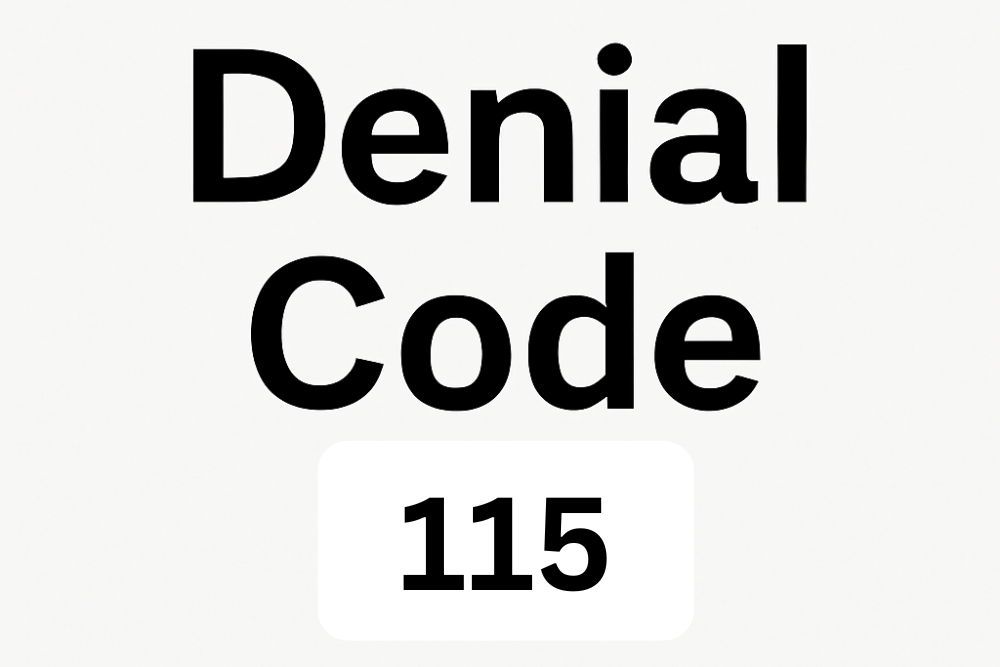Maximizing Revenue: Combating Denial Code 115 in Medical Billing
Denial Code 115 is a frequent and frustrating reason for claim denials in healthcare billing, indicating that a procedure was postponed, canceled, or delayed. These denials often lead to lost revenue, operational disruptions, and increased administrative burdens.
To protect your bottom line and ensure timely reimbursements, it’s essential to understand what triggers Denial Code 115 and how to proactively address its causes.
🔍 Common Causes of Denial Code 115
Denial Code 115 typically results from one of the following issues:
Patient-Related Factors
- Patient’s medical condition changes unexpectedly
- Unavailability due to personal or scheduling conflicts
- Failure to follow pre-procedure instructions
- Financial challenges (e.g., unmet deductibles, co-pays)
- Emergency health issues preventing procedure completion
Provider-Related Factors
- Scheduling errors or resource unavailability
- Need for further clinical evaluation or preparation
- Missing or incorrect documentation
- Determination of lack of medical necessity
Insurance-Related Factors
- Missing or delayed prior authorization
- Policy coverage limitations
- Specific procedures not covered under plan terms
Facility-Related Factors
- Equipment malfunction or outages
- Environmental issues (e.g., natural disasters, power failure)
- Staffing shortages or internal policy constraints
🚀 Strategies to Prevent Denial Code 115
1. Ensure Accurate and Timely Pre-Authorization
- Verify insurance coverage and obtain necessary approvals before procedures.
- Document all communication and approval references from the payer.
2. Strengthen Patient Communication
- Clearly inform patients about pre-op requirements, arrival times, and financial responsibilities.
- Use reminders (calls, texts, emails) to reduce no-show rates and last-minute cancellations.
3. Maintain Robust Documentation
- Keep detailed records of the medical necessity, procedure schedules, and any patient/provider delays.
- Timely update all EHR entries to reflect real-time developments.
4. Optimize Scheduling Practices
- Use automated scheduling tools to reduce human errors.
- Account for buffer time in high-risk or resource-intensive procedures.
5. Implement Risk Management Protocols
- Identify frequent causes of postponements and introduce preventive measures.
- Regularly review and revise internal workflows to remain compliant with insurance and regulatory standards.
💡 Need Expert Help With Denied Claims?
At Claims Med, our experienced revenue cycle management team helps healthcare practices resolve claim denials—including those caused by Denial Code 115. We offer tailored solutions to streamline your billing operations, reduce revenue leakage, and improve overall financial health.
📞 Contact us today to learn how we can help your practice prevent future denials and recover lost revenue efficiently.

